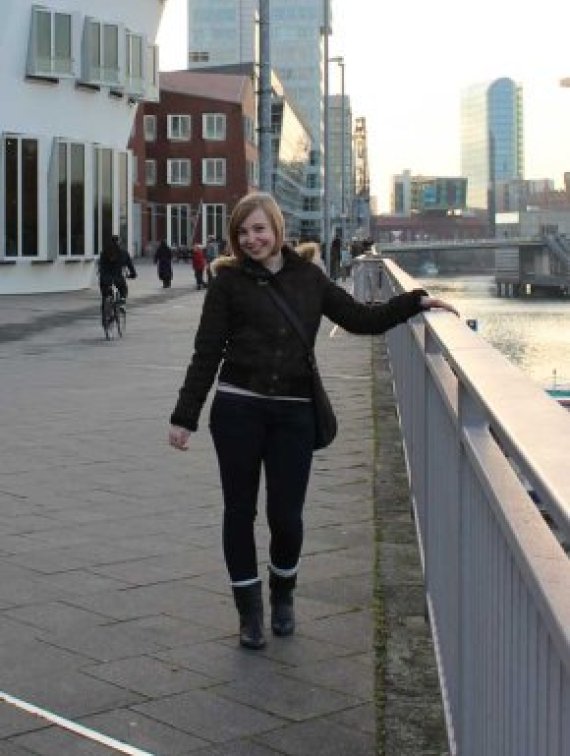For my project internship I was very keen to go abroad. There are lots of Germans on our course and my course career supervisor is also German, so I had the idea of doing an internship in Germany. Germany doesn’t sound far away, but you are still in a new city with a foreign language. Fortunately, everyone here is very helpful and I haven’t really been homesick. Düsseldorf is not far away so between Christmas and New Year I went home ‘as usual’. I did my project internship in a forensic toxicology laboratory that does blood testing for drugs and medicines for the police. The lab also carries out toxicological research on the tissues of sick people. During the internship I worked independently on a project. I had to study the effect of lyophilization (freeze drying) on tissues over the long term. It was interesting, I found, to see whether or not the concentrations of drugs and medicines decreased. This meant I first had to learn how you can demonstrate the presence of drugs and medicines. I wasn’t just working on my project, I also had the chance to see other departments at work. For example, I attended post-mortem examinations carried out in the pathology department . It struck me that compared with the Netherlands, Germany is pretty old-fashioned. As an example, there are lots of places where you can’t pay with a debit card, yet that is all I ever use in the Netherlands. The trams and trains, too, seem really old-fashioned to me. For instance, you can only buy a tram ticket with cash.’
Freeze-drying human flesh in Germany
Who? Jolien Diepstra, Forensic Sciences, VHLWhat? Internship study into the effect of freeze-drying on human tissueWhere? Institute for Forensic Medicine in Düsseldorf, GermanyWhy? There's so much to do and yet it's nice and close

